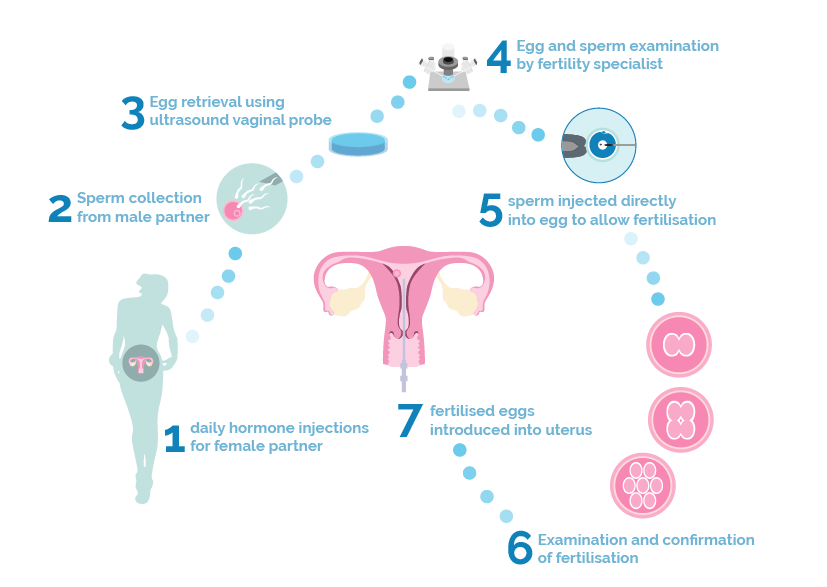Intracytoplasmic Sperm Injection (ICSI) is an advanced form of in vitro fertilisation (IVF) in which a single sperm is directly injected into an egg. While similar to traditional IVF, where eggs and sperm are combined in a petri dish to fertilise naturally, ICSI offers a more targeted approach. It is often used in cases of male infertility or when fertilisation challenges arise.
ICSI is commonly used to address severe male infertility, as sperm-related issues affect about half of couples facing fertility challenges. It is the most effective and widely used treatment in these cases, offering a higher chance of success in achieving conception.
ICSI is a laboratory technique in which a single sperm is carefully selected and injected directly into an egg using a fine glass needle to achieve fertilisation. Once the egg fertilises, embryo is transferred into the woman's uterus for potential implantation and pregnancy.



In India, fertility clinics often recommend ICSI when a couple is unable to conceive through standard IVF due to poor or absent fertilisation. ICSI is remarkably suggested for couples where the male partner: